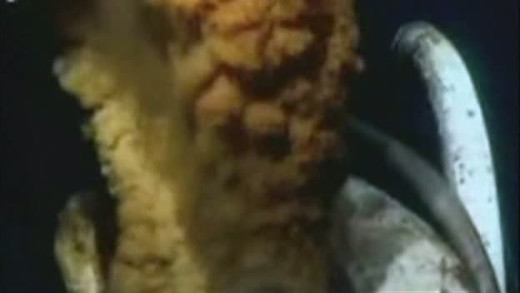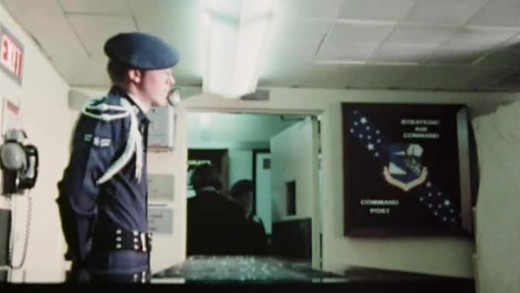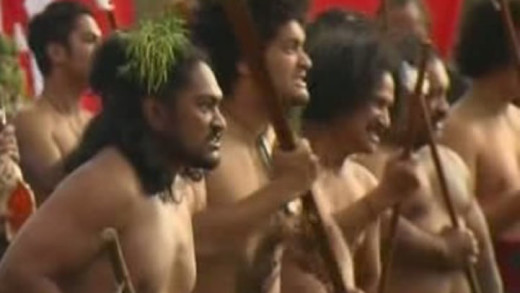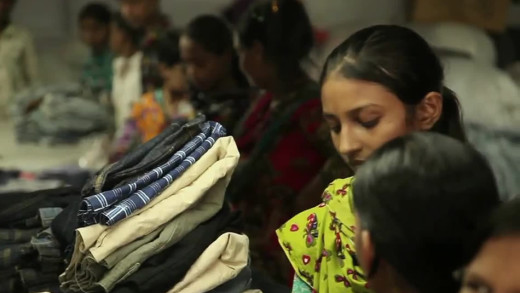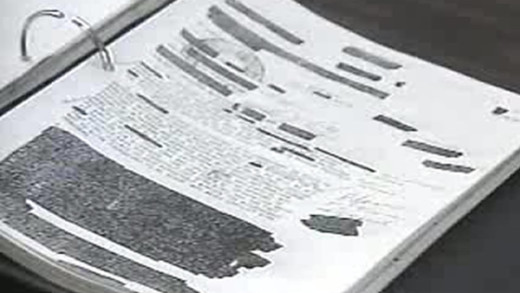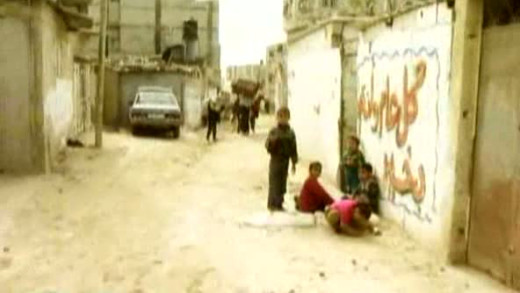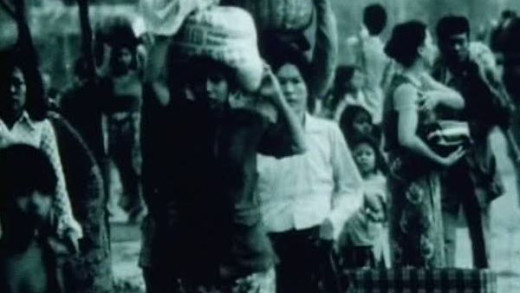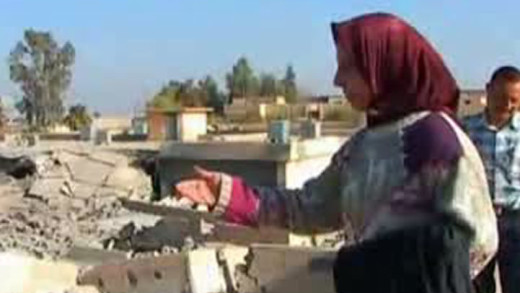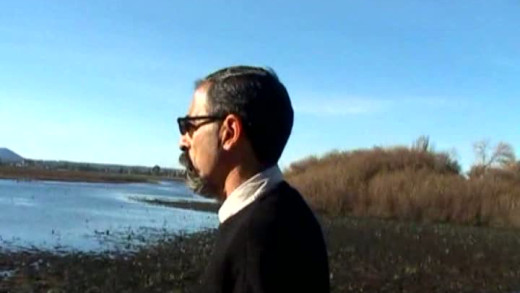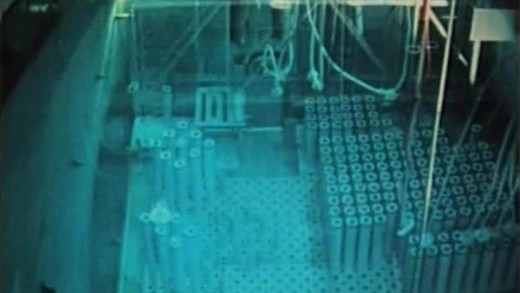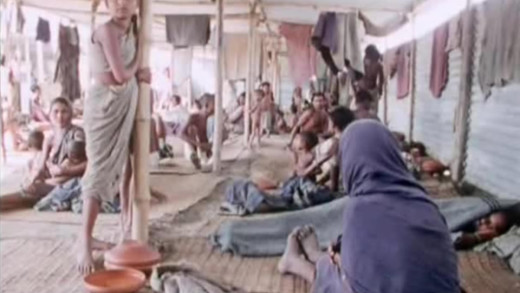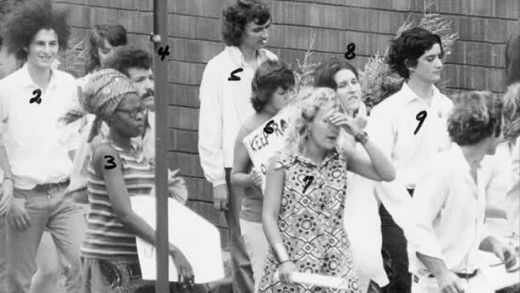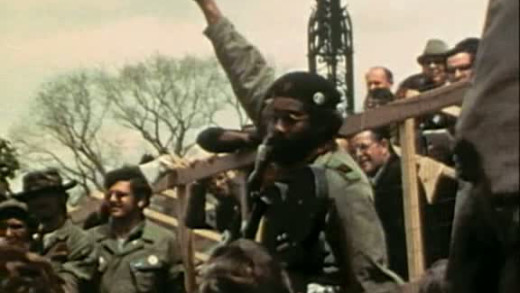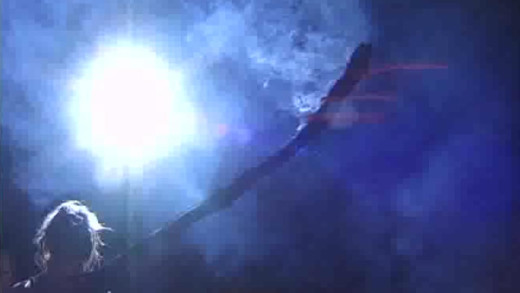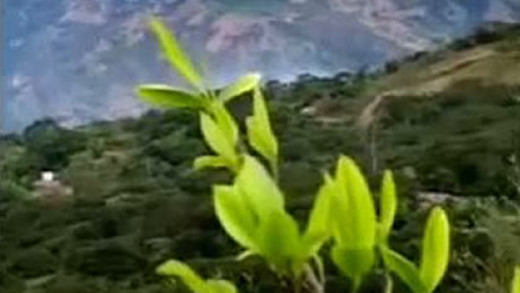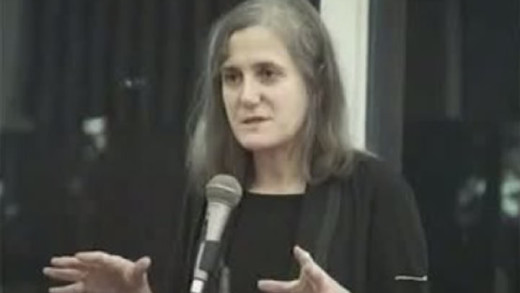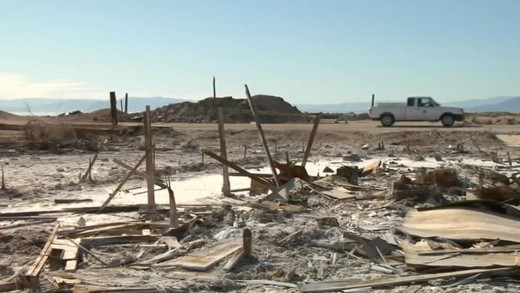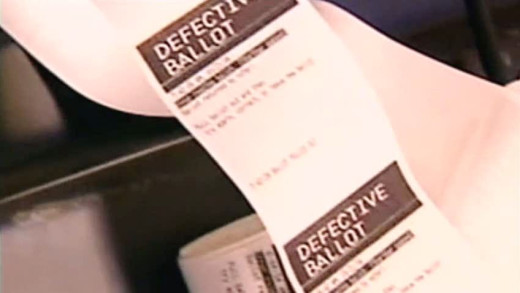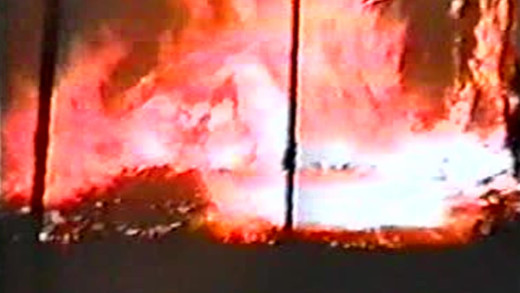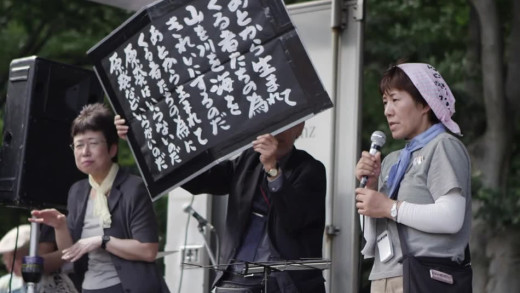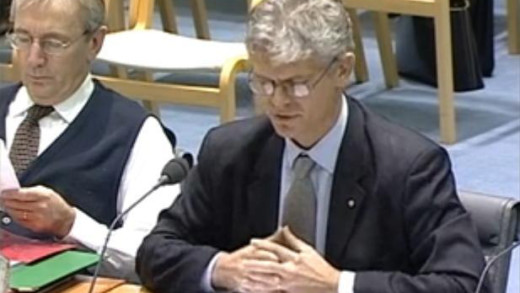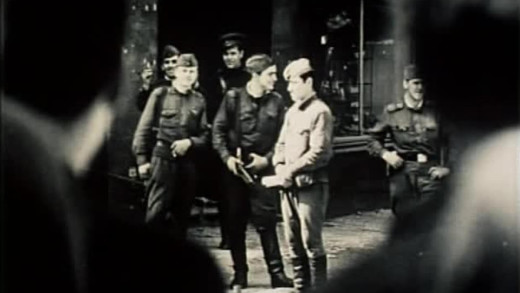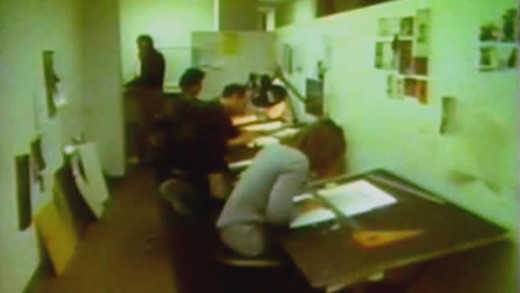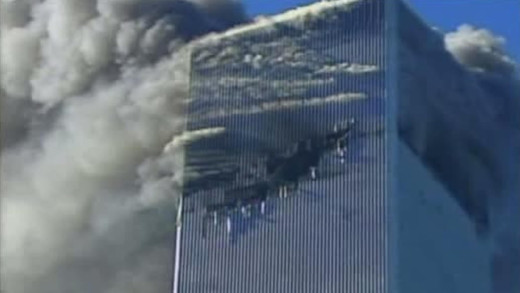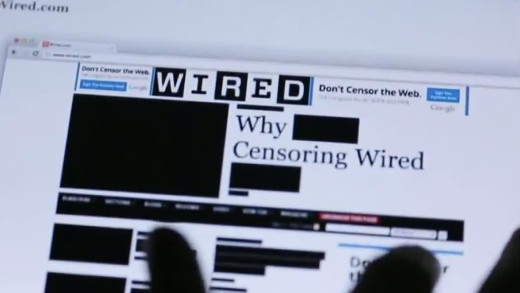One year after BP's Deepwater Horizon rig exploded spewed a massive 170 million gallons of oil into the Gulf of Mexico, BP claims victory -- that most of the oil is gone. Investigative journalist Greg Palast sets off to test this claim in person and digs into the history of BP and similar incidents. Revealed is the corporations collusion with government, its strong political influence worldwide, along with the massive ecological impact of the BP explosion, set to last for decades...
A Little Bit of So Much Truth captures a broad-based popular uprising in the southern Mexican state of Oaxaca in 2006 where tens of thousands of school teachers, housewives, indigenous communities, health workers, farmers and students took 14 radio stations and one TV station into their own hands—using them to organise, mobilise, and defend the fight for social, cultural, and economic justice.
Mr Nixon's Secret Legacy covers the absurdity of the supposed logic behind "Mutual Assured Destruction" or MAD--a doctrine of military strategy and the national security policy of the United States during the cold war. During this time, MAD is supposedly disassembled, but replaced with a strategy called "Counterforce." This film investigates the propositions of "Counterforce," questioning the rhetoric of executing a "flexible, acceptable nuclear war."
Tūhoe -- History Of Resistance documents the fight for justice of the Tūhoe people of Te Urewera, Aotearoa (New Zealand). Set on contested land in the Urewera ranges of the middle North Island, the film presents the ways of Māori--the indigenous peoples of the land.
In November 2012, yet another incident at a textiles factory in Bangladesh killed at least 112 people. Walmart’s brand shorts were among the clothing found in the charred remains. Walmart blamed its supplier, saying the order had been sub-contracted without its permission. With this example among the many, Made in Bangladesh illustrates the complex organisation of corporate obfuscation--the industries that continue to drive sweat shops, slave labour and child labour under a very clever hall of mirrors...
The Panama Deception documents the invasion of Panama in December 1989—codenamed Operation 'Just Cause.' The film gives context to the events which led to the invasion, and explores the real impact on the ground and devastating aftermath—all contrary to the views portrayed by mainstream media and rhetoric espoused at the time by government officials in the Bush administration. News footage and media critics reveal the extent of media control and self censorship of the invasion, relevant to any news coverage today, particularly during times of war.
Occupation 101: Voice of the Silenced Majority details life in the West Bank and Gaza Strip under Israeli military occupation. Examining events from the rise of Zionism to the Second Intifada and Israel's unilateral disengagement plan, as well as the role of the United States in the occuption, this film gives voice to many American and Israeli scholars, religious leaders, humanitarian workers, and NGO representatives—more than half of whom are Jewish—who are critical of the injustices and human rights abuses stemming from Israeli policy in the West Bank, East Jerusalem, and Gaza.
As the first complete report of the atrocities committed by the Khmer Rouge and the devastating affects of US bombing in Cambodia during the Vietnam War, Year Zero -- The Silent Death Of Cambodia is an important and historic document of the grim reign of Pol Pot and the world's response of indifference and inaction...
Denied a sense of nationalism since the second World War, Japanese society slowly re-established itself as a 'corporate' society in the eyes of the west, with hi-tech industry and mass manufacturing. Japan, Behind The Mask reports on the contrast between this popular image and the stereotypes of Japanese culture, revealing the reality of the lives of ordinary people who do not fit the image; the extraordinary part played by women; and the subtle, yet forceful way the Japanese establishment is today reclaiming its nationalism...
The United States heralded many grandiose promises of freedom and equal rights as they invaded Iraq. But still years on from the invasion, the reality of everyday life for women inside Iraq is of course a different story. To make this film, two Iraqi women risk their lives to spend three months travelling all over the country with a camera to record the lives and experiences of women they meet. Iraq -- The Women's Story provides a compelling account of a life inside Iraq that is never seen on news bulletins...
Payback Time recounts the experiences of Ramin Bakhtiarvandi as an asylum Seeker in Australia's Detention Centres from June 2000. After his release from a 4 year long detention, Ramin receives a $227,000 bill from the government. Payback Time raises serious questions about the conduct of the Australian Government to this day when dealing with asylum seekers, as well as revealing the harsh realities of a racist culture and complicit mainstream media.
An Unjustifiable Risk investigates the many risks of plutonium usage in nuclear power generation and the use of fast-breeder reactors argued for the UK in the 1970s. The film turns to Hiroshima, Japan to illustrate the powerful destructive capacities of plutonium, feeding-back the personal experiences of those effected by nuclear weapons into the debate against nuclear power and its consequences...
John Pilger travels to Bangladesh to report on the horrors of the famine in the country, its causes and tragedies, circa 1975. With people passing away on the street on a daily basis from starvation and US foreign policy continually ignored, An Unfashionable Tragedy documents the plight that continues to this day, showing that food is a powerful weapon, more powerful than oil...
Persons of Interest is a four part series where former activists and political dissidents are given their previously secret ASIO files and asked to explain the allegations contained in them. As a result, the series unravels the hidden political and cultural history of Australia that is still being unmasked today in a world gripped by confirmations of mass surveillance abuses by ASIO and other intelligence agencies such as the NSA in the United States. Using the content of the ASIO records themselves along with genuine surveillance footage, this series tells the story of spies, traitors and intelligence intrigue in Australia against a backdrop of the big political events of the 20th century; at a time when fear of Communism, outsiders and threats to the established order fostered the construction of a vast and secret network of surveillance on ordinary people.
Sir! NO Sir! tells the story of how--from the very start of the war, such as with the Green Berets--there was resentment within the ranks over the difference between the war in Vietnam and (as persons state in the film) the "good wars" that their fathers had fought. In the beginning some simply left the military as individuals, though over time, it became apparent that so many were opposed to the war that they could speak of a movement -- which over time eventually made the military almost inoperable...
In 1983, the Australian Government approved the construction of Olympic Dam uranium mine at Roxby Downs in central South Australia, despite overwhelming opposition by the traditional indigenous land owners—the Kokotha and Arabunna people—and other Australian's in the community. With an approval for expansion of the mine 14 years later, this film documents one of the many events organised in protest of the mine, as well as other actions to raise awareness of the many impacts of uranium mining in Australia.
Coca Or Death delves into Bolivia -- a country torn apart by the demands of the western world for coca. This film investigates why bloody battles have broken out between farmers and armed troops on the streets of La Paz, and what the impact of privatisation is having through the country. Coca has become a symbol of national resistance in Bolivia...
Amy Goodman from Democracy Now! speaks about the mainstream media's coverage of US interventions around the world and demonstrates the link between corporate media and government, and how this plays a major part in selling war at home and abroad...
After Iraq invaded Kuwait in 1990, the United Nations (backed strongly by the US and UK) imposed harsh sanctions on Iraq that lasted for 10 years (1991-2001); the harsh restrictions on imports of everything, including access to key medicines, resulted in over a million deaths, more than half a million of which were women and children. That's more deaths than the two atomic bombs dropped on Japan and the events of September 11 combined. The purpose was regime change, but it never came. The overwhelming majority of those killed were the poor, elderly, women and children. Empirically, sanctions overwhelmingly punish the poor, the destitute. While the sanctions were in place, the richest people in control of the resources (Saddam Hussein et al.) still had everything they wanted: food, cars, mansions, free access to medicines, etc...
Once advertised as the birthplace of a bright new future for the American Dream, Salton City, California is now crumbling into an apocalyptic landscape of pollution and desolate land. As farmers burn their fields, and the honey bee population dwindles, scum floats down the most polluted river in North America, which carries raw sewage, pesticides and factory waste from Mexico into the once-beautiful Salton Sea. Toxic Imperial Valley travels through these landscapes, meeting the squatters and other occupiers left, in what looks like the end of the world...
Uncounted documents how the election fraud that altered the outcome of the 2004 election led to even greater fraud in 2006 and now looms as an unbridled threat to the outcome of the 2008 and future elections. The film shows how easy it is to change election outcomes and undermine election integrity across the United States using electronic voting machines and even other simple methods of manipulation...
Self published by the press arm of the autonomous activist group called the Earth Liberation Front, Igniting The Revolution is an introductory guide to the activities of the ELF. The film goes through some examples of ELF actions and calls to resist against the forces destroying the natural world by using real direct-action tactics and economic sabotage...
Ever since three reactors went into meltdown at the Fukushima Daiichi Nuclear Power Plant in 2011; a broad, disparate, anti-nuclear movement is growing in Japan. Nowhere is that more apparent, perhaps, than in Fukushima prefecture, where a group of local women boldly protest the deafening silence of the Japanese government over the worst nuclear accident of this century. Largely ignored by their own media, these brave women brush aside cultural shyness and share their honest views on the state of the cleanup, the cover-ups, the untruths and the stagnant political climate in today’s Japan...
Outsourcing Torture documents the account of Mamdouh Habib, an Australian Muslim arrested in Afghanistan during a "general round up" where he was sent to Egypt to be tortured. Three years after his arrest, Mahdouh Habib is still imprisoned in Guantanamo, still not having been charged with any crime...
A Faraway Country is an examination of the Czech underground movement known as the Charter 77--an informal civic initiative in communist Czechoslovakia from 1976 to 1992, part of the Communist Soviet bloc. The film shows interviews with members of Charter 77, and others, describing first-hand the totalitarian communist regime, and their response to it.
Street Of Joy looks at how product marketing methods and advertising techniques are applied to politics by specifically following the campaigns around the election of Jimmy Carter in the United States during 1976. In these times, the techniques of today are seen in their early years, especially the use of carefully crafted images for use on television...
9/11 -- Birth Of Treason provides an analysis of the attacks of September 11 2001. Amongst interviews and exchanges, Steven Jones and Kevin Ryan of Scholars for 9/11 Truth and Justice speak about their research. Examined is the phenomenon of the freefall-speed collapse of the towers and building 7, and Steven Jones' research into Thermite/Thermate explosives...
In January 2012, two controversial pieces of legislation were making their way through the United States Congress. SOPA, the "Stop Online Piracy Act", and PIPA, the "Protect Intellectual Property Act", were meant to 'crack down' on the illegal sharing of digital media. The laws were drafted on request of the 'content industry' -- Hollywood studios and major record labels. But websites reacted against the government to speak out against SOPA, and the bill was effectively killed off after the largest online 'protest' in history. But it was only one win in a long battle between authorities and online users over Internet regulation. SOPA and PIPA were just the latest in a long line of 'anti-piracy' legislation that governments have been pressing since the 1990s. Can and should the internet be controlled? Who gets that power? How far will the United States government go to control the Internet?
